The Nigerian newspapers for Tuesday, January 29, are centred around lawyers' resolve to buycott courts over suspended CJN Walter Onnoghen, Senate's rift with the federal government following his removal, as it asks the presidency to reinstate the chief judge and the police's alleged involvement in the sealing of the justice's residence.
Nigerian newspapers for Tuesday, January 29, are rife with the saga of the suspended Chief Justice of Nigeria, Walter Onnoghen, and the mixed reactions it has triggered in the polity among political, intellectual and judicial circles recently.
The Guardian the Nigerian Bar Association (NBA) on Monday, January 28, urged all its members in the country to stay away from all courts for two days starting from Tuesday, January 29, in protest against the suspension of the Chief Justice of Nigeria (CJN), Walter Onnoghen.
In a statement after its recent meeting, the NBA said: “NEC resolved that members should boycott all courts for the next two days starting from 29th to 31st of January, 2019.”
The NBA condemned President Muhammadu Buhari’s “outright disrespect for the constitution” in the suspension of Onnoghen. On his part, Onnoghen, on Monday referred to reports about his resignation as false.
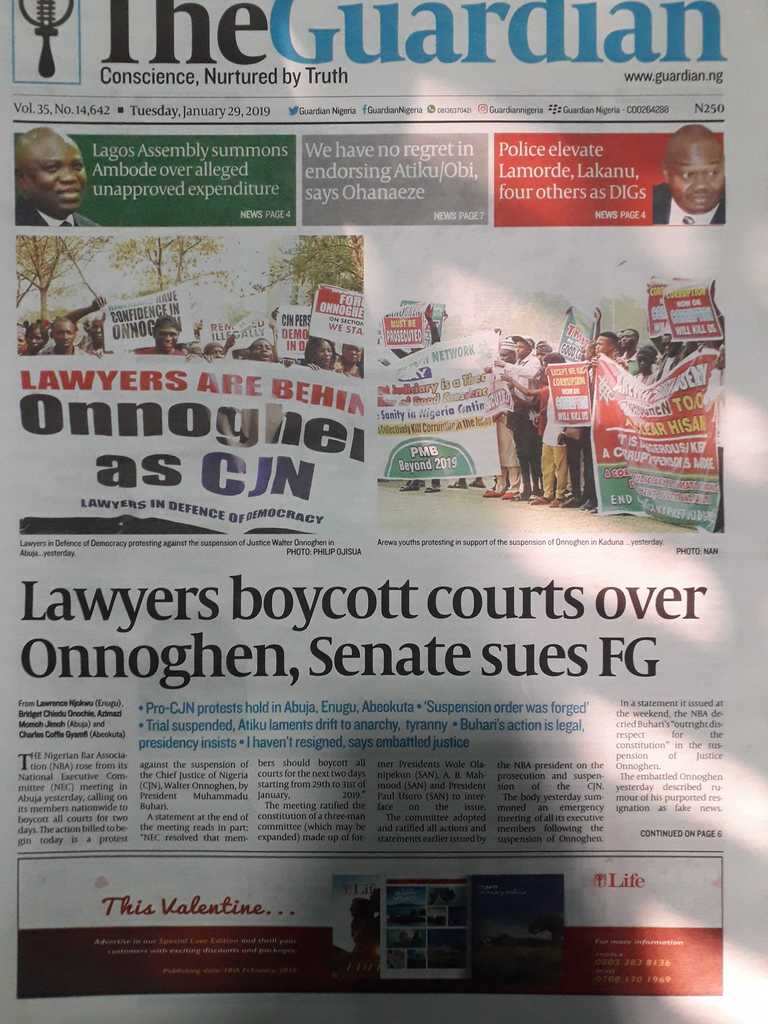
Nigerian newspapers review for Tuesday, January 29, front page of The Guardian newspaper Source: Original
Source: UGC
This Day also reported that stiff objection to the removal of Onnoghen by the federal government was heated up on Monday as the Senate approached the Supreme Court to ascertain the legality of President Buhari's action.
The federal government's suspension of Onnoghen has been seen by many as a violation of the rule of law and the principles of separation of powers shared among the executive, legislative and the judicial arms of government by the 1999 Nigerian constitution as amended.
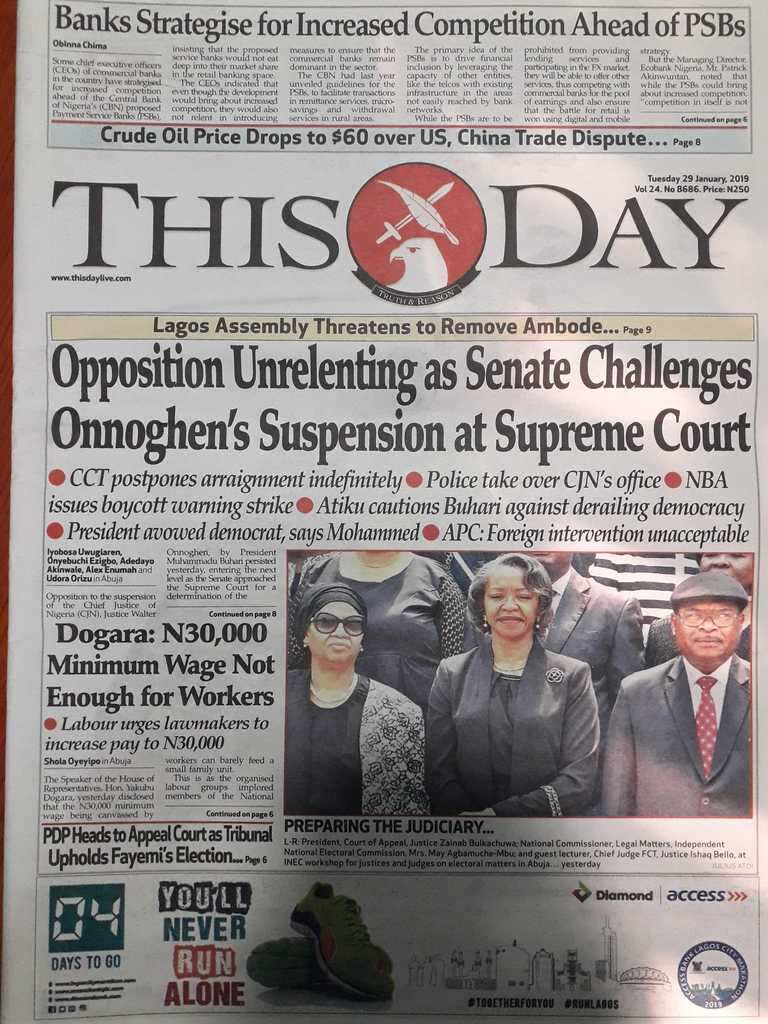
Nigerian newspapers review for Tuesday, January 29, front page of This Day newspaper Source: Original
Source: UGC
The Vanguard brought to the open the rather disturbing news that the police on Monday allegedly sealed off Onnoghen's office in Abuja.
Awusam Bassey, the media aide to Onnoghen, concerning the development, revealed that some policemen sent out staff members of the sacked CJN and took over his office.
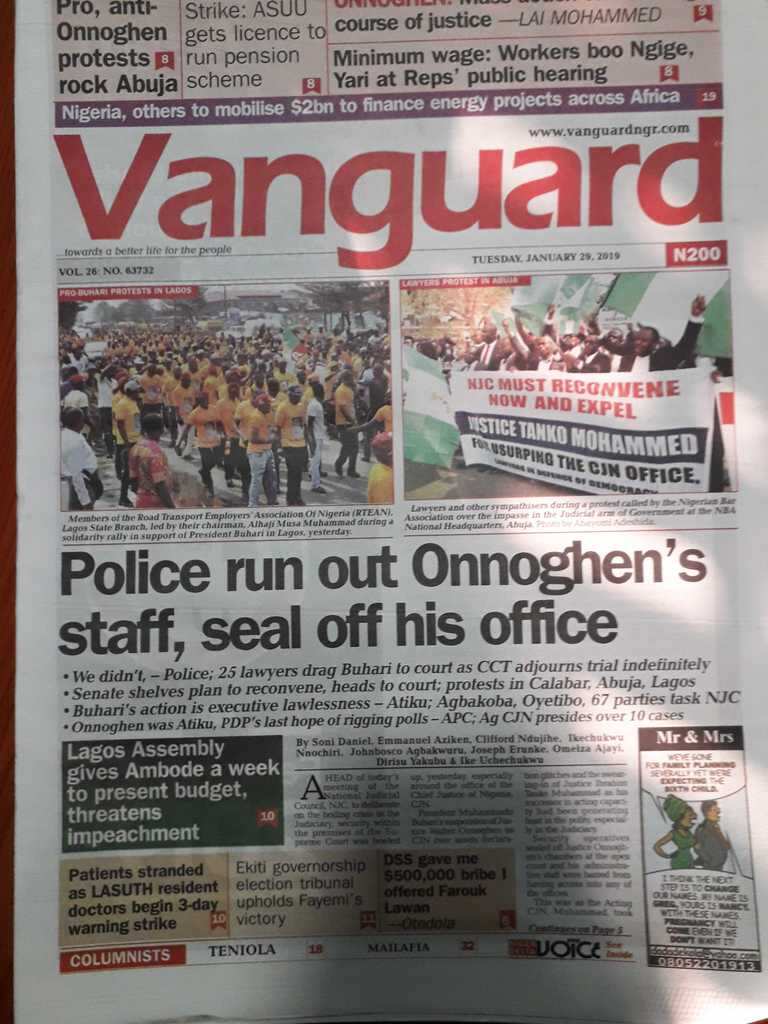
Nigerian newspapers review for Tuesday, January 29, front page of Vanguard newspaper Source: Original
Source: UGC
More on the opposition to Onnoghen's suspension, Punch reported that the Senate has filed a suit before the Supreme Court insisting that the sacked CJN should be reinstated immediately.
The legal action by the Senate came after it cancelled its scheduled plenary scheduled for Tuesday.
The special adviser (media) to the Senate president, Yusuph Olaniyonu, in a statement explained that the cancellation of the plenary was due to the legislature's resolve to seek judicial interpretation to Onnoghen’s suspension.
The Senate in its suit said: “A declaration that the suspension, by the President, of Hon. Justice Walter Samuel Nkanu Onnoghen from his office as Chief Justice of Nigeria on or about January 25, 2019, without an address calling for the removal, supported by two-thirds majority of the Senate is in violation of section 292(1)(a)(i) of the constitution and therefore null and void.
“An order rescinding or setting aside the suspension of Hon. Justice Walter Samuel Nkanu Onnoghen from his office as the Chief Justice of Nigeria and restoring him to the said office.
“An order restraining the defendants from continuing or repeating the violation of the Constitution of the Federal Republic of Nigeria and disregarding the powers of the Senate at the Federal Republic of Nigeria.”
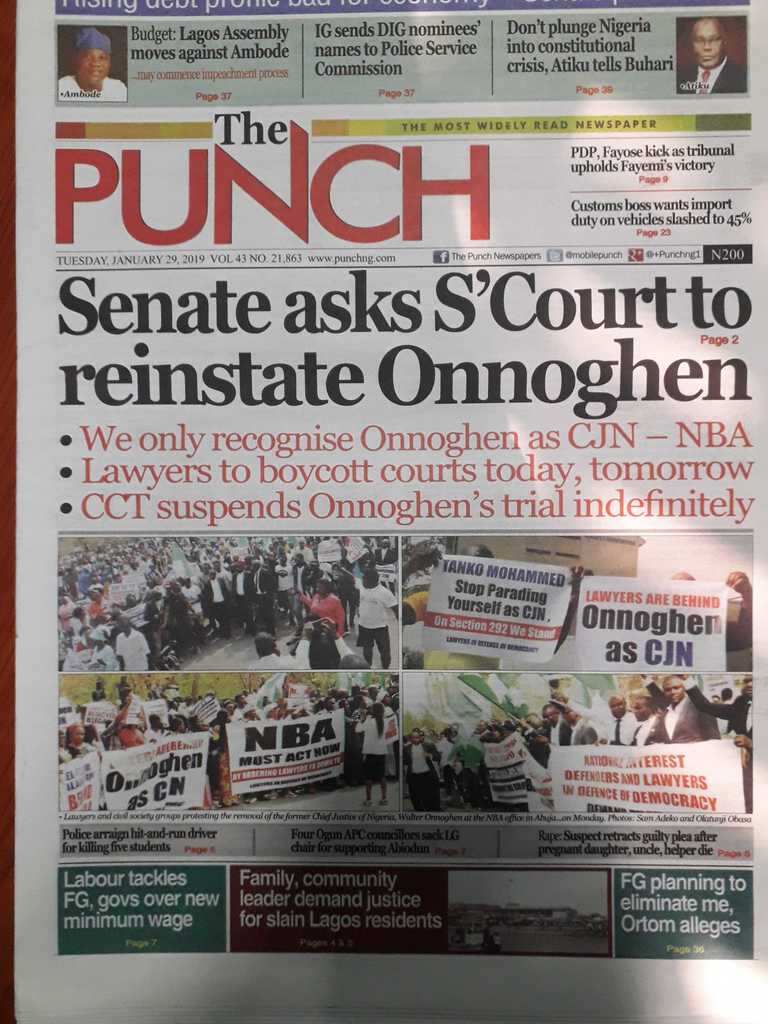
Nigerian newspapers review for Tuesday, January 29, front page of Punch newspaper Source: Original
Source: UGC
Still on the suspension of Onnoghen, The Nation reported that the position of the Senate is that with regard to section 292 and Part 1 of the Third Schedule to the Nigerian Constitution and section 21 of the Code of Conduct Bureau and Tribunal Act, the president could not “suspend” or “prevent” the CJN from performing the functions of his office “on the directive of the Code of Conduct Tribunal or for any reason whatsoever, without an address supported by two-thirds majority of the Senate calling for the removal of the Chief Justice of Nigeria”.
It further said: “Having regard to section 231 of the Constitution of the Federal Republic of Nigeria, 1999, as amended, and in particular, sub-sections (1) and (4) thereof, can the President of the Federal Republic of Nigeria appoint an acting Chief Justice of Nigeria when there is no vacancy in that office and when the substantive Chief Justice of Nigeria is fit and able to perform the functions of the office and without the recommendation of the National Council and confirmation of such appointment by the Senate.”
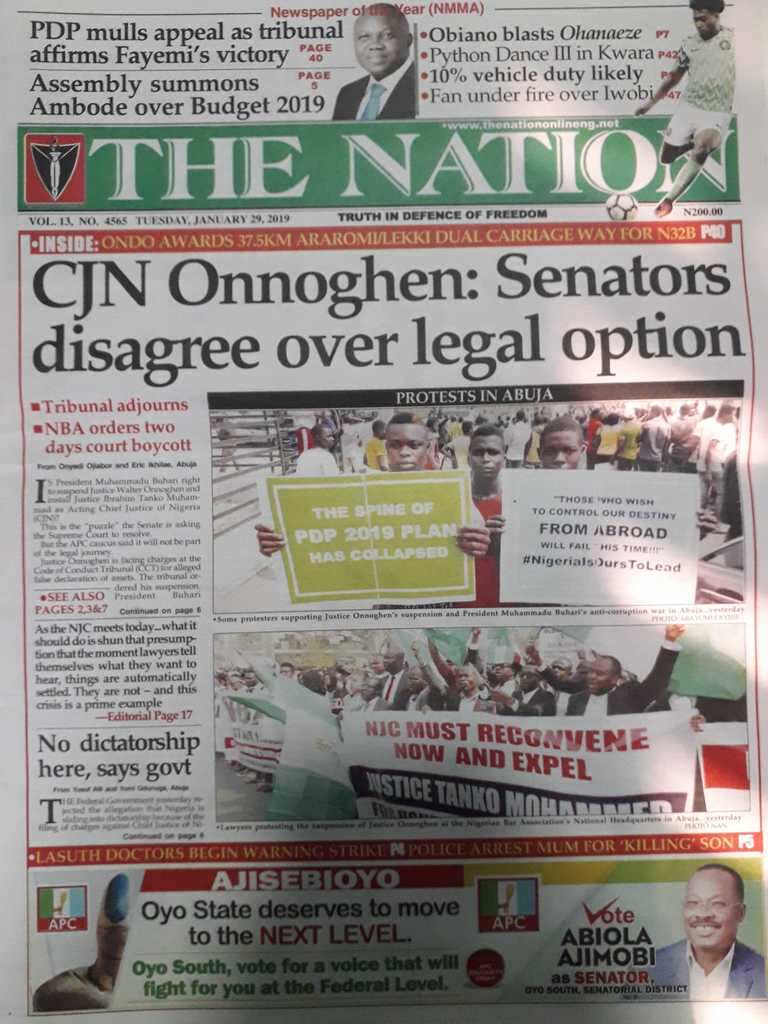
Nigerian newspapers review for Tuesday, January 29, front page of The Nation newspaper Source: Original
Source: UGC
NAIJ.com (naija.ng) -> Legit.ng: Same great journalism, upgraded for better service!
Onnoghen's Trial is Politically Motivated - APRJ | Legit TV
Source: Legit.ng
from Nigeria News today & Breaking Naija news ▷ Read on Legit.ng 24/7 http://bit.ly/2G8l43Z
via EDUPEDIA24/7
Comments
Post a Comment